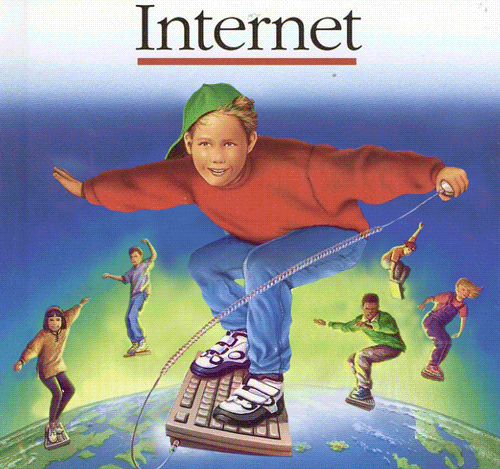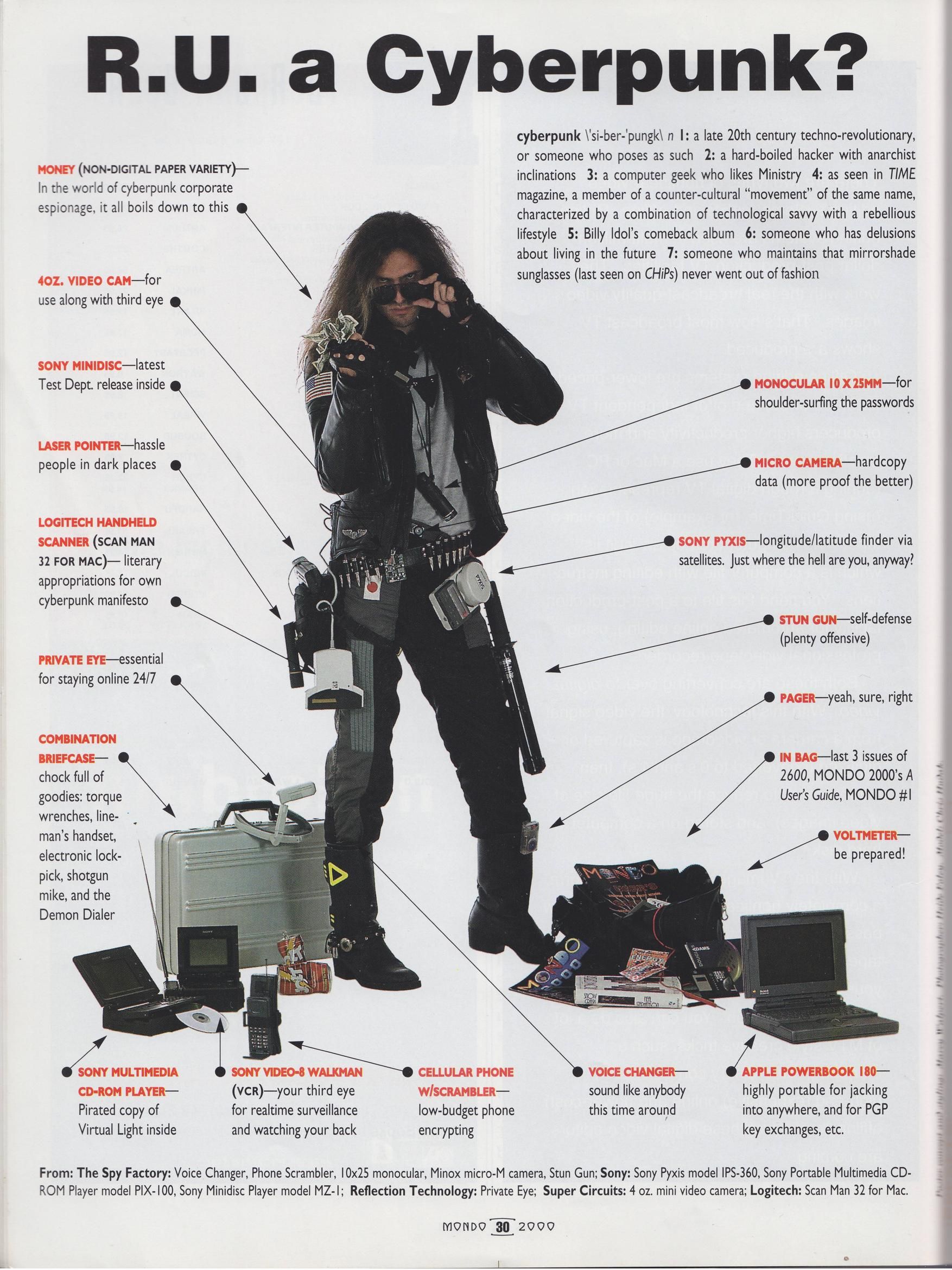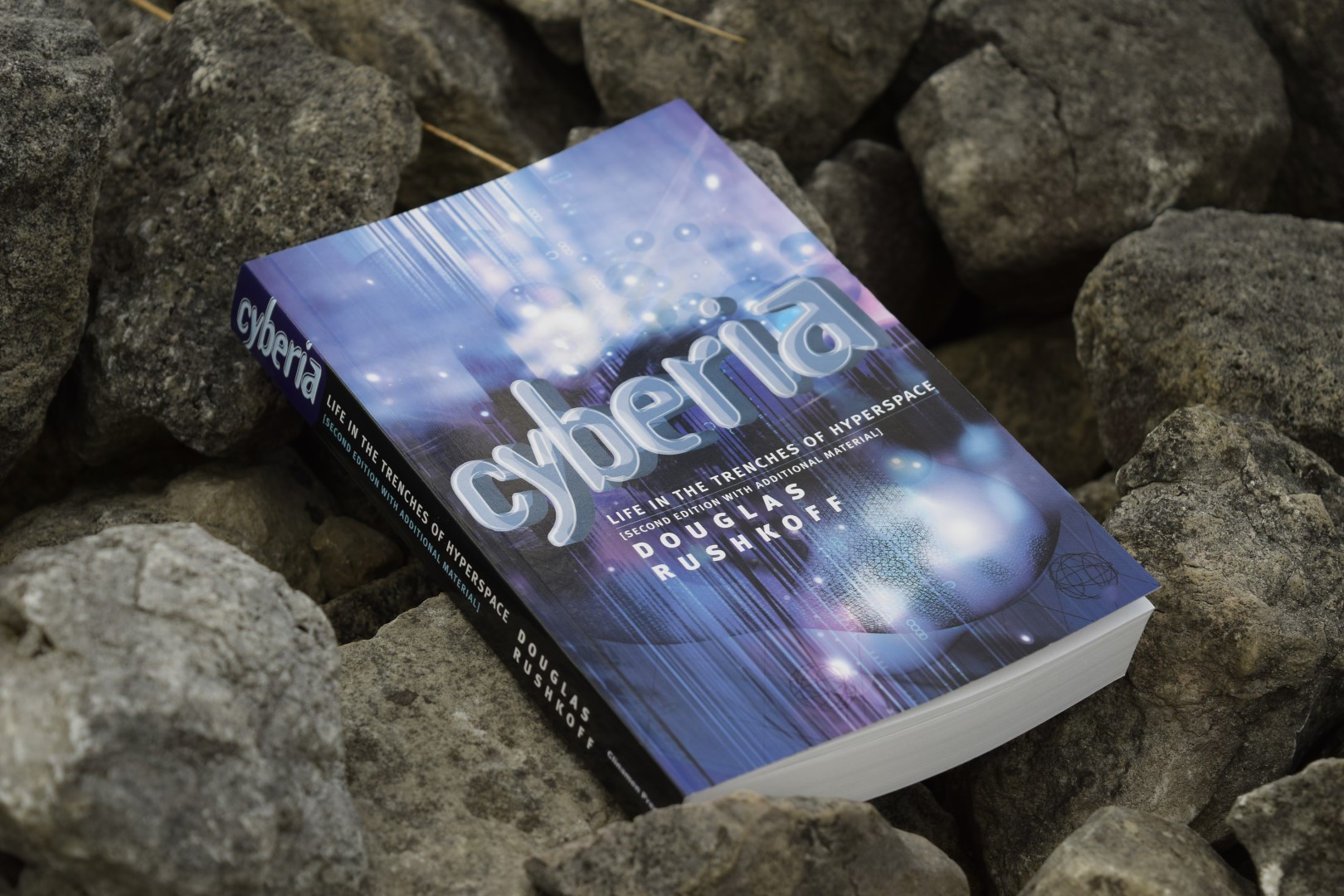Cyberia: Life In The Trenches of Hyperspace
By Douglas Rushkoff
11-04-21
What is Cyberia?
Cyberia is a dimensional plane, ever expanding, endless possibilities, connections galore, an invisible territory where the physical realm is only one aspect. This boundless landscape is Cyberia. Our technological strides of our post-modern culture have helped forge this plane, and creates new art, music, entertainment, and lifestyle; a birth of a new renaissance is here. The book Cyberia follows the lives and translates the experiences of these first few people who took a leap into the unknown. Cyberians see computers as extensions of the human mind, forever changing the psyche of those that tap into a realm other than reality.
Cyberia was written in 1992, a time before cell phones, the mass adoption of the internet, and well under half of households even owning a personal computer. The book covered many ideas/predictions that were spot on, such as Virtual Reality, "hiveminds" such as TOPY [which I consider to be similar to Twitter], and meme warfare. There are also predictions that never came to fruition, such as the end of the world in 2012. The book framed Cyberia as a renaissance, but didn't account for today's issues with the internet, like disinformation, automation, government surveillance on a massive scale, addiction to social media, and other challenges.

About the Author:
Douglas Rushkoff is an author and documentarian who studies human freedom in the digital age. He is best known for his association of early cyberpunk culture and explores how different technological environments change our relationship between one another. He earned his PhD in New Media and Digital Culture from Utrecht University.
In order to traverse in Cyberia, you need a gateway to enter. The Apple personal computer, created by Steve Jobs and Steve Wozniak, was the way in. At the time, exploration of Cyberia was limited and clunky through the use of the Altair brand of computers. Dan Kottke, one of the original apple engineers, describes "[Altair] appealed to the soldering iron kinds of hackers, not the spiritual kind. Dan met Steve by taking psychedelics together and talking about Buddhist philosophy. In a way, the invention of the PC was psychedelics influenced. Apple: the fruit of forbidden knowledge brought to use by acid heads.

An graphic taken from Mondo 2000, at the time, a popular cyberculture magazine covering topics like virtual reality and smart drugs.
(Click image to enlarge)
Why are kids better at learning to use computers than adults?
Just like an immigrant family who comes to America, it's the kids who learn the new language first and best. It makes sense, that children pick up on this new world quite quickly and can adapt. At the time, when the computer space was just emerging, companies couldn't hire kids... so the next best thing was psychedelics users. Great programmers must be able to come from "a point of total oblivion" in order to fully understand cyber language, and during the 1970s - 1980s, psychedelics users fit the bill. In a field of research, no one cares about who the employee is, just creative output that matters.
Although today, I would argue that the most recent generation has taken a step backward in computer literacy, mainly because of the proliferation of smartphones and the "dumbing down" of technology. But that's a rant for another article.
Communication
In a reality beyond time or locational space, subcultures develop and communities form. Places like the WELL (Whole Earth 'Lectronic Link), other bulletin board services (BBS's - similar to a forum), TOPY and more are gathering spaces for likeminded individuals, all anonymous, behind a screen. Information passes quickly through the net, and has made the world feel smaller as a result. TOPY (Thee Temple Ov Psychick Youth) is a network where its main idea that all members compose a single, informational being, sharing articles, mail, and "magickal techniques." In a way while reading, this reminded me of Twitter because often, people reefer to the site as a collective. TOPY also has adopted new meanings for words and phrases, similar to Twitter and the use of the hashtag. People go to Twitter to see "what's trending", share their thoughts, a similar climate to TOPY.
Rushkoff also raises multiple questions about the affects of Cyberia on its residents. How likely are people to go off their virtual rocker? Can we leave behind the everyday real-life human interactions in cyberspace? Just how intimate can we get through our computers, and at what cost?
Things I found out...
This has probably been one of the hardest books to read, as during some parts I had no clue what was going on, there was a lot of talk about drugs, there were some dull moments. After seeing Grateful Dead mentioned over and over with the counterculture of the 1960's and the similarities with the 1990's, I gave it a listen and found that I enjoyed the music. I have also gained a greater appreciation for the Internet and how truly life changing it can be; you can find out nearly everything you have ever asked yourself, right at your fingertips. The 90's was a hopeful time for the future of technology, where anything could be possible, and this book has been a window into that past that has since faded, mainly because of technology is now commonplace in almost every industry, for better or for worse.

I took this photo while at Medina Lake with my DSLR camera
External Links
- Was Humanity Simply Not Ready for the Internet? | Medium - An article I found that Rushkoff wrote in 2019 reflecting upon the book 25 years later and the issues we have to deal with today involving technology.
- Douglas Rushkoff: Present Shock: Everything is Now - A talk about his new book that explores the simultaneous society in which we live in.
- Once Upon a Time in Cyberville (1996) - A video from the time that describes this hopeful 90's future better than I can, Douglas Rushkoff appears as a speaker.
It's going to be a completely wild ride by the year 2012, everything gonna have just turned completely upside down... and we're not even going to know where we are...
- Some curly haired guy in Cyberville (Timestamp: 33:10)
| Term |
Definition |
Peculiar Words
List of words that were new to me:
Sequitur
Page 15 |
the conclusion of an inference |
Penchant
Page 33 |
strong and continued inclination |
maelstrom
Page 67 |
powerful often violent whirlpool sucking in objects within a given radius |
presupposition
Page 80 |
to suppose beforehand |
eschatological
Page 81 |
of or relating to the end of the world |
Occult
Page 133 |
to shut off from view or exposure |
| Thanks Merriam-Webster! |
Back To
Page Created by
Michael Kennelly ©2021



